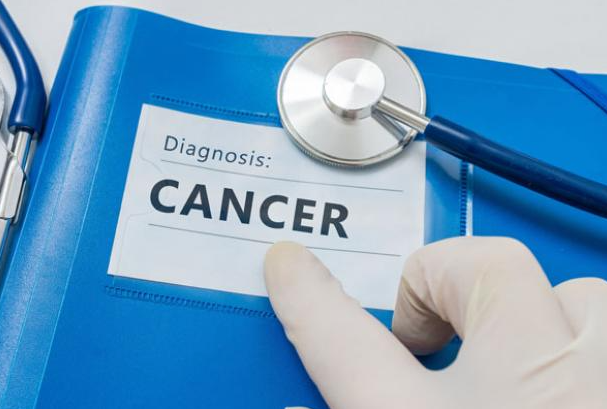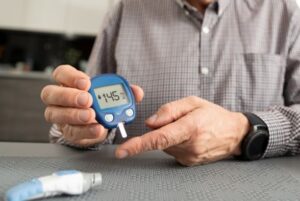Young Cancer Diagnoses Surge; Expert Identifies Concerning Cause
In an age where medical advancement continues to break barriers, a shocking rise in cancer diagnoses among young adults poses a troubling question: Why? The recent surge has evidently caught the attention of medical experts and the general public alike. This blog post delves deep into the concerning cause behind this unsettling trend.
The Alarming Statistics Surrounding Young Cancer Diagnoses
According to recent studies, cancer diagnoses among individuals under 50 have seen a significant spike over the past decade. Doctors and researchers are ringing alarm bells, urging for immediate attention to this troubling development. A deeper look at the statistics reveals:
- The number of new cancer cases in people aged 20-49 has increased by approximately 30% in the last ten years.
- Breast cancer, colorectal cancer, and lymphoma are among the most frequently diagnosed types in this age bracket.
- The survival rates for certain cancers remain starkly lower for younger patients compared to their older counterparts.
Pushing the Panic Button: Factors Leading to the Rise
Dr. Sarah Thompson, a leading oncologist, has highlighted several potential factors contributing to this unfortunate trend:
Lifestyle Changes
The past few decades have witnessed dramatic shifts in lifestyle and dietary habits. Factors such as:
- Increased consumption of processed foods
- Higher levels of sugar and unhealthy fats in daily diets
- Sedentary lifestyles and lack of physical activity
These changes have played a significant role in deteriorating general health, notably affecting younger populations who adopt these trends early on.
Environmental Factors
In addition to lifestyle changes, environmental exposures have dramatically increased. Dr. Thompson points out:
- Rising levels of pollution
- Exposure to carcinogenic substances, such as pesticides and industrial chemicals
- Proliferation of radiation from electronic devices
These factors contribute to an ever-growing risk of developing cancer at a younger age.
Genetic Predisposition
Genetics undoubtedly plays a role in the predisposition to cancer. With genetic testing becoming more available, younger individuals are discovering their susceptibility to certain types of cancer earlier. While this awareness is vital, it’s disheartening how genetics continues to affect so many, so early in life.
Immediate Steps for Mitigation
Addressing this concerning rise in young cancer diagnoses involves action from both individuals and larger communities. Dr. Thompson recommends:
Adopting Healthier Lifestyles
Making conscious efforts to alter lifestyle habits can significantly influence one’s overall health and lower cancer risk. Some actionable steps include:
- Switching to balanced diets rich in fruits, vegetables, and whole grains
- Engaging in regular physical exercise, aiming for at least 150 minutes of moderate activity per week
- Limiting processed foods and sugary beverages
Reducing Environmental Risks
Minimizing exposure to harmful environmental factors requires both individual and collective efforts:
- Using eco-friendly and organic products when possible
- Advocating for cleaner air and stricter pollution control regulations
- Limiting the use of electronic devices that emit harmful radiation
Regular Health Screenings
Early detection remains one of the best weapons against cancer. Thus, Dr. Thompson strongly emphasizes:
- Regular health check-ups and screenings for early signs of cancer
- Genetic testing for those with a family history of the disease
- Staying informed about potential symptoms and risk factors
Expert Perspectives and Community Support
Dr. Thompson isn’t alone in her findings. Numerous experts echo her concerns:
- Dr. Michael Evans, a renowned researcher, stresses the importance of community awareness and education.
- Dr. Emily Wood, another leading expert, advocates for more funding and resources to study the rise of cancer in younger age groups.
- Organizations like the American Cancer Society are ramping up efforts to support young patients and promote early screenings.
The community, too, must rally behind this cause. Simple acts such as participating in awareness campaigns, supporting policies designed to reduce pollution, and advocating for better food quality standards can collectively make a large difference.
Facing the Future with Cautious Hope
While the sharp increase in young cancer diagnoses is undeniably concerning, it also serves as a wake-up call for society. Individuals, healthcare professionals, and policymakers alike must heed the warning signs and work collaboratively toward reversing this trend.
By making lifestyle changes, advocating for cleaner environments, and prioritizing regular health screenings, we can better arm ourselves against this growing menace. As more research is conducted, and as awareness grows, there is hope that future generations will face fewer cancer diagnoses and lead healthier, longer lives.









